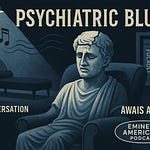My guest on this episode of the podcast is Timothy Lensmire, professor of Education at the University of Minnesota and the author or editor of, among other works, White Folks: Race and Identity in Rural America; Powerful Writing, Responsible Teaching; and Whiteness at the Table: Antiracism, Racism, and Identity in Education. He is also a co-founder of the Midwest Critical Whiteness Collective (MCWC).
Tim and I talk primarily about two things: the powerful critique that he and his MCWC colleagues have made, from the anti-racist left, of Peggy McIntosh’s seminal essay on white privilege (commonly known as the “invisible knapsack” essay), and Tim’s own work on whiteness and white identity.
We also just talk, in general, about the ways that both the left and right over-simplify the complexity of being white in America, and how these over-simplifications get in the way of getting to where most (or at least many) of us would like to get.
Episode reading list:

“White Privilege and Male Privilege: A Personal Account of Coming to See Correspondences Through Work in Women’s Studies,” by Peggy McIntosh
2.73MB ∙ PDF file
Through work to bring materials and perspectives from Women's Studies into the rest of the curriculum, I have often noticed men's unwillingness to gram that they are overprivileged in the curriculum, even though they may grant that women are disadvantaged. Denials that amount to taboos surround the subject of advantages that men gain from women's disadvantages. These denials protect male privilege from being fully recognized, acknowledged, lessened, or ended. Thinking through unacknowledged male privilege as a phenomenon with a life of its own, I realized that since hierarchies in our society are interlocking, there was most likely a phenomenon of white privilege that was similarly denied and protected, but alive and real in its effects. As a white person, I realized I had been taught about racism as something that puts others at a disadvantage, but had been taught not to see one of its corollary aspects, white privilege, which puts me at an advantage.
Download
"Mcintosh As Synecdoche How Teacher Education's Focus on White Privilege Undermines Anti-Racism," by the Midwest Critical Whiteness Collective
117KB ∙ PDF file
In this article, members of the Midwest Critical Whiteness Collective argue that Peggy
McIntosh’s seminal “knapsack” article acts as a synecdoche, or as a stand-in, for all
the antiracist work to be done in teacher education and that this limits our understanding
and possibilities for action. The authors develop this argument by questioning
the lack of critique of McIntosh’s 1988 classic “invisible knapsack” article and
sharing two narratives by members of their collective that illustrate problems with
both the acceptance and the rejection of McIntosh’s conception of white privilege. This
discussion illuminates how white privilege pedagogy demands confession and how
confession is a dead end for antiracist action. The authors also explore how McIntosh’s
ideas can lead to dangerous misreadings of student resistance. Acknowledging
the initial fruitfulness of McIntosh’s ideas, it is time for us to move to more complex treatments of working with white people on questions of race, white supremacy, and
antiracism.
Download
"White Folks," by Daniel Oppenheimer
179KB ∙ PDF file
This is my review essay from 2018 in which I talk about Tim's book and the earlier critique of the McIntosh essay, as well as a bit about my own experience of working in a diversity and inclusion group at a university.
Download
"Ralph Ellison," by Timothy Lensmire
126KB ∙ PDF file
When his writing is mentioned in educational literatures, it is Ralph Ellison’s acclaimed novel, Invisible Man, that is most often referenced. Considerably less attention has been paid to Ellison’s two collections of essays, Shadow and Act and Going to the Territory. In addition to powerful reflections on and insights into literature, black experience, and
democracy in the United States, these volumes offer resources for a compelling account of white racial identity. Ellison believed that scapegoating rites or rituals were crucial to the creation and maintenance of white American selves, and that at the center of these scapegoating rites were black people.
Download












Share this post